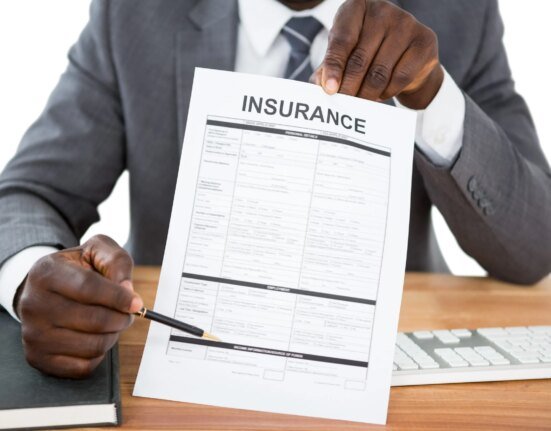3-minute read

President Trump calls tariffs ‘medicine’ as stock market plunges
President Donald Trump spent the weekend at a golf tournament in Florida as the stock market continued to plunge.
- If you’re facing an annual required minimum distribution from a retirement account, advisers suggest waiting for later in the year to see if the market recovers.
Stocks have dropped precipitously. There is talk of a looming recession. And the vast majority of retirement accounts have lost value since President Donald Trump introduced a cornucopia of tariffs last week that sent markets into a tailspin.
At a time when moving large sums of money and buying or selling investment products can be as easy as a mouse click, investment experts say the same thing over and over again.
Don’t panic. Stay the course. And if you need to take money out of your retirement account, take just enough to cover your expenses until the market recovers.
“No one can really plan for a downturn like this, just as it’s very difficult to time a recovery,” said Rob Williams, managing director of financial planning at Charles Schwab. “The key is to know your goals and plan years earlier.”
Story continues below photo gallery.
The best preparation for a downturn should come years in advance. Those who are five to 10 years away from retirement should begin to depend less on stocks as the backbone of their portfolio, Williams said.
Many targeted funds already do this, gradually mixing more bonds and fixed income products into a stock-heavy portfolio as a retirement date nears. Growth is not as high, but neither is the risk of a loss like the 9.6% drop that the S&P 500 has seen since Thursday.
That benchmark index had a roller-coaster day on Monday, closing just slightly down compared with the steep losses on Thursday and Friday.
Trump said Monday that he’s not considering pausing his recently imposed tariffs, which have sent the stock market spiraling, but he is willing to negotiate the duties with other nations.
Asked about mixed messages on the topic from White House officials, Trump told reporters at the Oval Office, “There can be permanent tariffs and there can also be negotiations, because there are things that we need beyond tariffs. We need open borders.”
What if I’m about to retire?
For those on the cusp of retirement and who would need to tap into their 401(k) or IRA immediately, they may want to push that retirement date off by a few months to see if the stock market recovers, said Justin Rice, president of the Financial Planning Association of New Jersey.
For retirees, a lot depends on their financial situation. Do they live off their retirement savings? Is it used to supplement other income? Do they rarely tap into it?
Many investors treat their retirement account as a savings account. They just keep putting money into it without really paying attention to what it’s invested in. “There’s a tendency for investors to stick to what works,” Williams said. “There’s also inertia: We’ve made money in the stock market, so let’s keep it there.”
Retirees should plan to have enough money to fund a 20- to 30-year retirement, so stocks are still needed for portfolios to grow at a decent rate even if the majority is in a fixed-rate product.
When should I take a required minimum distribution, or RMD?
Some retirees are required to withdraw from their pretax retirement accounts whether they want to or not.
After 73, a person who has a 401(k) or traditional IRA is forced by the government to withdraw a certain percentage of money from their account each year. This is called a required minimum distribution, and it allows the IRS to collect income taxes on the withdrawal.
An RMD can be taken monthly or annually. If it is taken annually, advisers suggest waiting for later in the year to see if the market recovers. If stocks are still low when they withdraw, they can reinvest that money, minus the withholding taxes, back into stocks via a brokerage account. If you must sell low, also buy low.
What if I’m still years from retirement?
For those who are years away from retirement, the advice is simple: Keep doing what you’re doing. Continue to contribute as much as possible to a 401(k) or IRA. It’s a long-term investment that has shown to produce great returns over the course of its life.
Even though most people don’t like talking about money with others, it’s important to speak with someone about finances during a downturn, whether it’s a trusted friend, a family member or a professional, Rice said.
“Don’t go through this alone,” he said. “Some people like to say that they’re purely analytical, but they’re full of it. There’s a numbers side of finance and there is the emotional side. And the emotional side weighs on everyone.”
This article contains information from USA Today.







